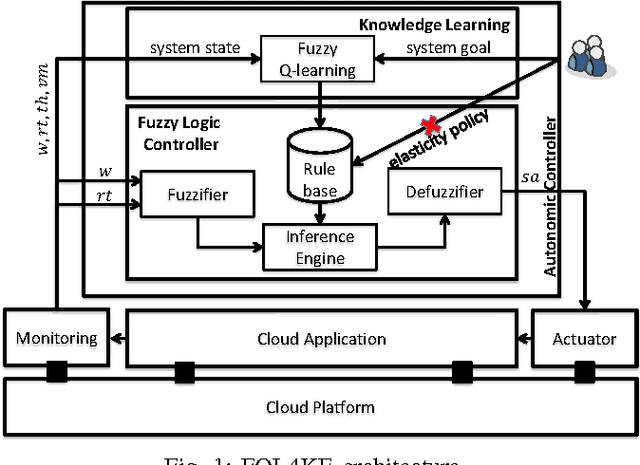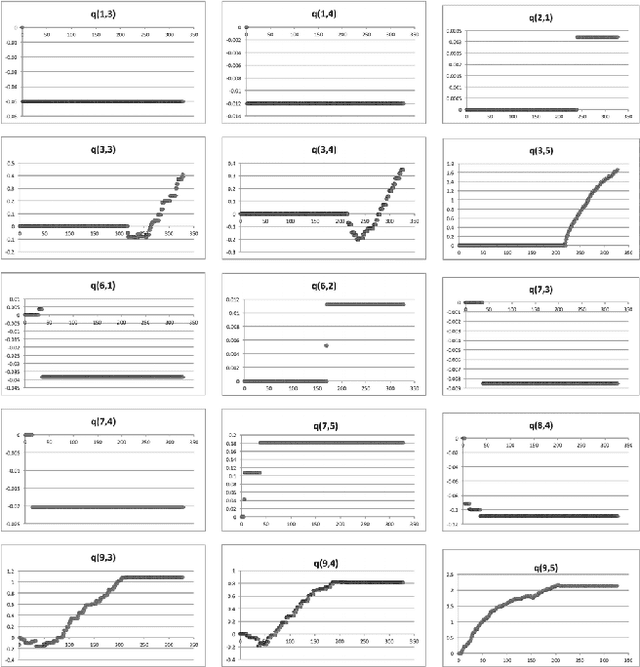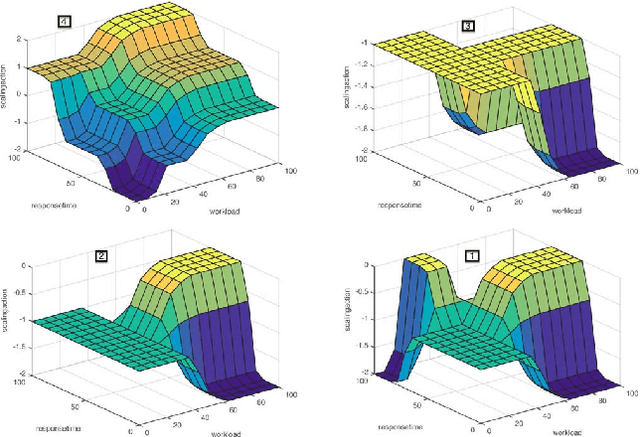Claus Pahl
A Comparison of Reinforcement Learning Techniques for Fuzzy Cloud Auto-Scaling
May 19, 2017



Abstract:A goal of cloud service management is to design self-adaptable auto-scaler to react to workload fluctuations and changing the resources assigned. The key problem is how and when to add/remove resources in order to meet agreed service-level agreements. Reducing application cost and guaranteeing service-level agreements (SLAs) are two critical factors of dynamic controller design. In this paper, we compare two dynamic learning strategies based on a fuzzy logic system, which learns and modifies fuzzy scaling rules at runtime. A self-adaptive fuzzy logic controller is combined with two reinforcement learning (RL) approaches: (i) Fuzzy SARSA learning (FSL) and (ii) Fuzzy Q-learning (FQL). As an off-policy approach, Q-learning learns independent of the policy currently followed, whereas SARSA as an on-policy always incorporates the actual agent's behavior and leads to faster learning. Both approaches are implemented and compared in their advantages and disadvantages, here in the OpenStack cloud platform. We demonstrate that both auto-scaling approaches can handle various load traffic situations, sudden and periodic, and delivering resources on demand while reducing operating costs and preventing SLA violations. The experimental results demonstrate that FSL and FQL have acceptable performance in terms of adjusted number of virtual machine targeted to optimize SLA compliance and response time.
Self-Learning Cloud Controllers: Fuzzy Q-Learning for Knowledge Evolution
Jul 02, 2015


Abstract:Cloud controllers aim at responding to application demands by automatically scaling the compute resources at runtime to meet performance guarantees and minimize resource costs. Existing cloud controllers often resort to scaling strategies that are codified as a set of adaptation rules. However, for a cloud provider, applications running on top of the cloud infrastructure are more or less black-boxes, making it difficult at design time to define optimal or pre-emptive adaptation rules. Thus, the burden of taking adaptation decisions often is delegated to the cloud application. Yet, in most cases, application developers in turn have limited knowledge of the cloud infrastructure. In this paper, we propose learning adaptation rules during runtime. To this end, we introduce FQL4KE, a self-learning fuzzy cloud controller. In particular, FQL4KE learns and modifies fuzzy rules at runtime. The benefit is that for designing cloud controllers, we do not have to rely solely on precise design-time knowledge, which may be difficult to acquire. FQL4KE empowers users to specify cloud controllers by simply adjusting weights representing priorities in system goals instead of specifying complex adaptation rules. The applicability of FQL4KE has been experimentally assessed as part of the cloud application framework ElasticBench. The experimental results indicate that FQL4KE outperforms our previously developed fuzzy controller without learning mechanisms and the native Azure auto-scaling.
 Add to Chrome
Add to Chrome Add to Firefox
Add to Firefox Add to Edge
Add to Edge